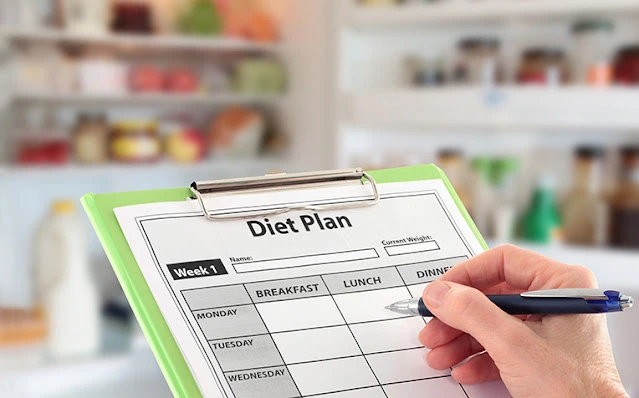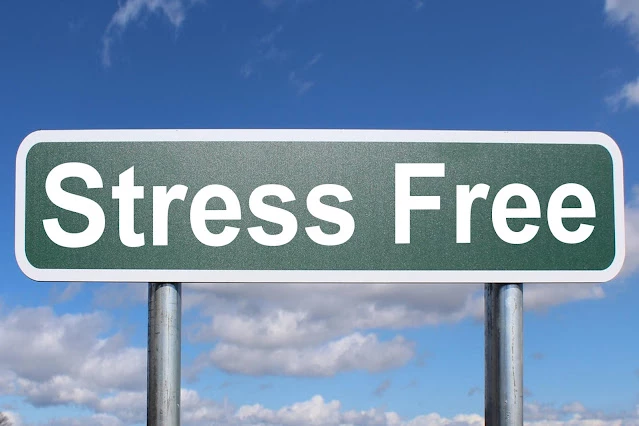Welcome to our latest blog post, where we will be discussing how to lose weight without exercise. We know that many of you are looking for ways to shed those extra pounds without hitting the gym or going for a run. We have some good news: weight loss isn’t just about exercise. Diet plays a much more significant role in weight loss than many people realize.
This post will discuss five simple diet changes that can help you lose weight without breaking a sweat. From incorporating more protein into your diet to practicing mindful eating, these changes are easy to implement and can make a big difference in your weight loss journey. See Also: How to Lose Weight Without Exercise by Optimizing Your Diet.
So, these tips will work for you whether you’re a busy professional or a stay-at-home parent. So, without further ado, let’s dive in and explore these five simple diet changes that can help you lose weight without exercise.
Change #1: Eating More Protein
We’ll start with change number one: eating more protein. Protein is an essential nutrient that plays a crucial role in weight loss. It helps to keep you feeling full and satisfied for longer, which can prevent overeating and snacking on unhealthy foods.
Protein is also essential for building and maintaining muscle mass, which can boost your metabolism and help you burn more calories throughout the day.
Tips for incorporating more protein into your diet
So, how can you incorporate more protein into your diet? One easy way is to make sure to include a source of protein in every meal. For breakfast, you can add eggs or Greek yogurt to your oatmeal. For lunch, you can add some chicken or turkey to your salad. And for dinner, you can enjoy a lean cut of meat, like salmon or steak.
Another way to add more protein to your diet is to replace some of the processed carbohydrates in your diet with high-protein foods. Some high-protein foods include chicken, turkey, fish, lean cuts of beef, eggs, Greek yogurt, cottage cheese, beans, and lentils.
By incorporating more protein into your diet, you’ll be able to lose weight without exercise. Not only will you feel full and satisfied, but your body will also burn more calories throughout the day. So, next time you plan your meals, include a protein source in every meal and snack.
Change #2: Reducing Carbohydrates

The following change on our list is reducing your carbohydrate intake. Carbohydrates are essential to a healthy diet but can lead to weight gain when consumed excessively. It is because carbohydrates are quickly converted into sugar in the body and can cause blood sugar spikes and crashes. It can lead to cravings for more carbohydrates and overeating.
Tips for reducing your carbohydrate intake
So, how can you reduce your carbohydrate intake and lose weight without exercise? One way is to pay attention to the types of carbohydrates you consume. Instead of refined carbohydrates, such as white bread and pasta, opt for whole-grain options. Whole-grain carbohydrates are digested more slowly and will help keep you full and satisfied for longer.
Another way to reduce your carbohydrate intake is to increase your intake of non-starchy vegetables. These types of vegetables are low in carbohydrates and high in fiber, which will help you feel full and satisfied. Some examples of non-starchy vegetables include broccoli, spinach, kale, cauliflower, and bell peppers.
Consider reducing your portion size of carbohydrates or replacing them with healthy fats and proteins. It will help balance your meals and keep you full and satisfied. An easy way to do this is to ensure half of your plate is filled with non-starchy vegetables, a quarter with protein, and a quarter with carbohydrates.
By reducing your carbohydrate intake, you’ll be able to lose weight without exercise. You’ll be able to keep your blood sugar levels stable, preventing cravings and overeating. So next time you plan your meals, choose whole-grain carbohydrates and non-starchy vegetables and pay attention to portion sizes.
Change #3: Incorporating Intermittent Fasting
Change number three is all about intermittent fasting. Intermittent fasting is a pattern of eating that cycles between periods of fasting and eating. It has been gaining popularity recently as a weight loss strategy and for its numerous health benefits.
The benefits of intermittent fasting for weight loss are numerous. When you fast, your body burns stored fat for energy. It means that you can lose weight without having to restrict calories. Intermittent fasting also helps regulate hunger hormones, leading to fewer cravings and overeating. It also improves insulin sensitivity, which can help to regulate blood sugar levels, preventing energy crashes and cravings.
Tips for implementing intermittent fasting into your lifestyle
Implementing intermittent fasting into your lifestyle may seem daunting, but it’s pretty simple. One of the most popular methods is the 16/8 method, where you fast for 16 hours and eat during an 8-hour window.
It can be as simple as skipping breakfast and eating your first meal at noon. Another popular method is the 5:2 method, where you usually eat for five days and fast for two non-consecutive days.
Intermittent fasting can be a great way to lose weight without exercise. However, it’s essential to make sure you’re still getting all the nutrients your body needs by eating a well-balanced diet during your eating window. It’s also important to listen to your body and ensure you’re not overdoing it.
If you’re new to intermittent fasting, it’s best to start with shorter fasting periods and gradually increase them as you become more comfortable.
Incorporating intermittent fasting into your lifestyle can be a powerful way to lose weight without exercise. The benefits go beyond weight loss. So, why give it a try and see for yourself? Remember to listen to your body; if you need clarification, please consult a healthcare professional before making any dietary changes.
Change #4: Practicing Mindful Eating
Change number four is all about practicing mindful eating. Mindful eating is the practice of paying attention to your food and the experience of eating. It’s about being present in the moment rather than eating on autopilot or being distracted by other things.
The impact of mindfulness on weight loss is significant. When mindful of your food, you’re more likely to make healthier choices. You’re also more likely to eat until you’re satisfied rather than until you’re stuffed. Other articles about mindful eating can be read here: How to Prevent Obesity through Mindful Eating Practices.
Mindful eating can also help to reduce stress and emotional eating. When you’re aware of your food, you’re more likely to savor it and enjoy it, making you feel more satisfied.
Tips for practicing mindful eating
So, how can you practice mindful eating? One way is to slow down when you’re eating. Take your time to chew your food thoroughly and savor the flavors and textures. Another way is to eat without distractions, such as the TV or phone. It will help you to be more present at the moment and to enjoy your food more.
You can also try mindful eating techniques, such as the ” raisin exercise.” You take a raisin, observe, smell, feel, and finally taste it. It will help you to eat slowly and savor the flavors. Another technique is to eat with your non-dominant hand. It will help you to slow down and pay attention to your food.
Practicing mindful eating can be a powerful way to lose weight without exercise. It can help you to make healthier choices, eat until you’re satisfied, and reduce stress and emotional eating. So, why not try it out and see for yourself? Remember to be patient and take it one step at a time.
Change #5: Getting Enough Sleep and Managing Stress

Finally, we change number five: getting enough sleep and managing stress. You may wonder what sleep and stress do with weight loss, but it is more closely connected than you might think.
Sleep plays a vital role in weight loss. When you’re not getting enough sleep, your body produces more of the hormone ghrelin, which increases hunger and cravings.
Additionally, when you’re tired, you’re more likely to make unhealthy food choices and eat more than you need to. On the other hand, when you’re well-rested, you’re more likely to make healthy choices and have the energy to exercise.
Stress also plays a role in weight loss. When stressed, your body produces more cortisol, which can lead to weight gain. Stress can also lead to emotional eating, sabotaging your weight loss efforts.
Tips for improving sleep and managing stress
So, what can you do to improve your sleep and manage stress? One way is to establish a regular sleep schedule. Try to go to bed and wake up simultaneously every day, even on weekends. Another way is to create a relaxing bedtime routine, such as reading a book or taking a warm bath.
You can try relaxation techniques such as deep breathing, meditation, yoga, or tai chi to manage stress. You can also incorporate more physical activity into your day, such as walking or taking a dance class.
By getting enough sleep and managing stress, you’ll be able to lose weight without exercise. You’ll be more likely to make healthy choices, have the energy to exercise and avoid emotional eating. So, why not try it out and see for yourself? Remember to be patient and take it one step at a time.
Conclusion
We understand that starting a weight loss journey can be overwhelming. Still, by taking small steps and being consistent with these changes, you will be able to see the results. Remember that weight loss is a journey, and being kind to yourself is essential.
We encourage you to implement these lifestyle changes and see how easy it is to lose weight without exercise. Remember to take it one step at a time and be kind to yourself along the way. We wish you all the best on your weight loss journey.


